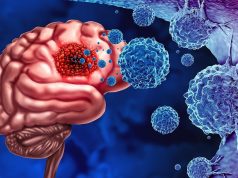Model can also predict flare-ups, clinical outcomes
By Lori Solomon HealthDay Reporter
TUESDAY, March 14, 2023 (HealthDay News) — An artificial intelligence (AI) model can distinguish histological remission from activity in biopsies of ulcerative colitis (UC) and can predict flare-ups, according to a study published online March 3 in Gastroenterology.
Marietta Iacucci, M.D., Ph.D., from University of Birmingham in the United Kingdom, and colleagues developed and validated an AI computer-aided diagnosis system to evaluate UC biopsies and predict prognosis. The system was trained to distinguish remission from activity on a subset of 118 digitized biopsies, calibrated on 42 and tested on 375.
The researchers reported that the system distinguished histological activity/remission with sensitivity and specificity, respectively, of 89 and 85 percent (PICaSSO Histologic Remission Index [PHRI]), 94 and 76 percent (Robarts’), and 89 and 79 percent (Nancy Histological Index). For the Ulcerative Colitis Endoscopic Index of Severity and PHRI, the model predicted the corresponding endoscopic remission/activity with 79 and 82 percent accuracy. For pathologist-assessed PHRI and AI-assessed PHRI, the risks for disease flare-up between histological activity/remission groups were hazard ratios of 3.56 and 4.64, respectively. The external validation cohort confirmed histology and outcome prediction.
“Ulcerative colitis is a complex condition to predict, and developing machine learning-derived systems to make this diagnostic job quicker and more accurate could be a game changer,” Iacucci said in a statement.
One author disclosed financial ties to the medical device industry.
Copyright © 2023 HealthDay. All rights reserved.








